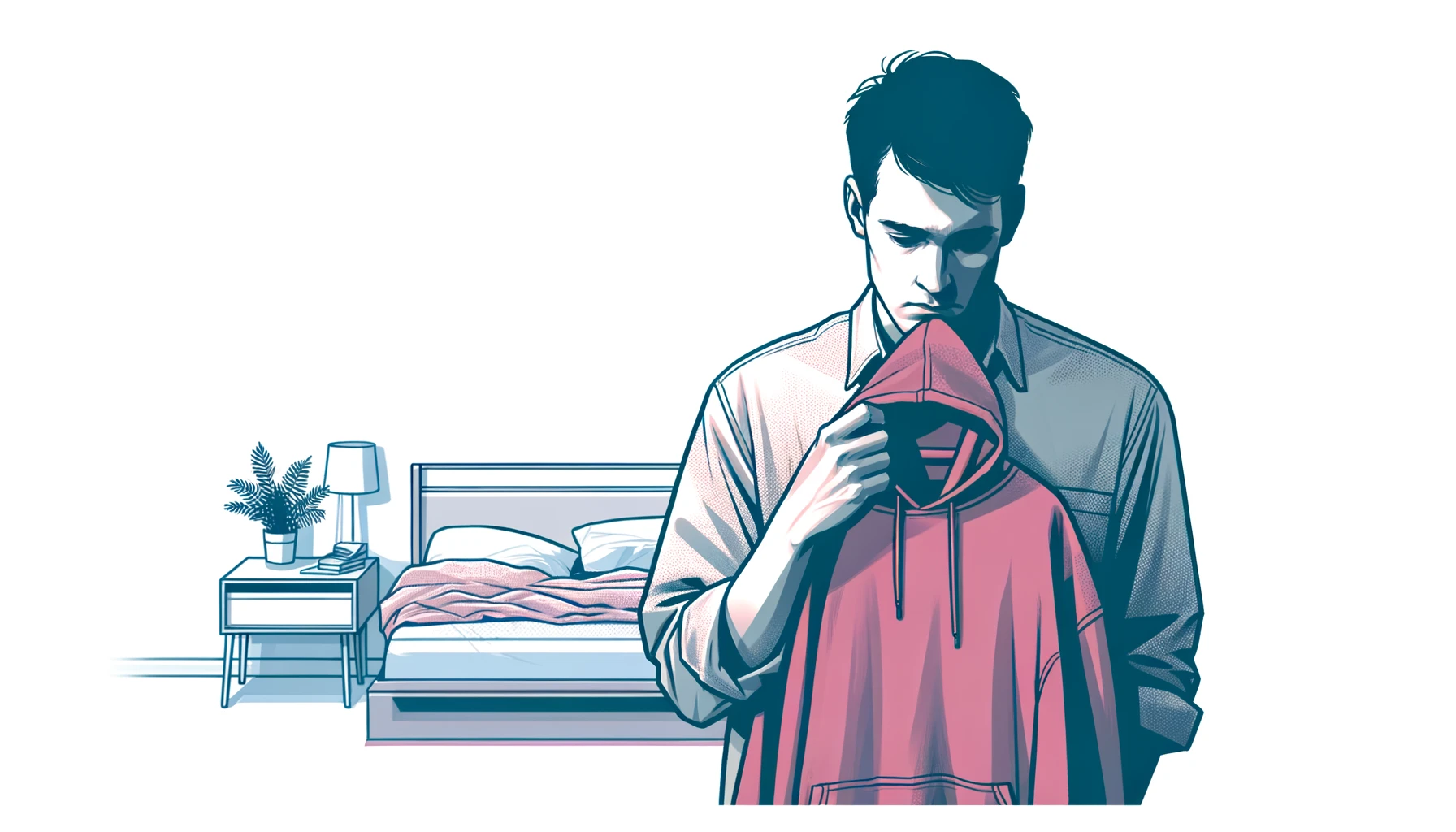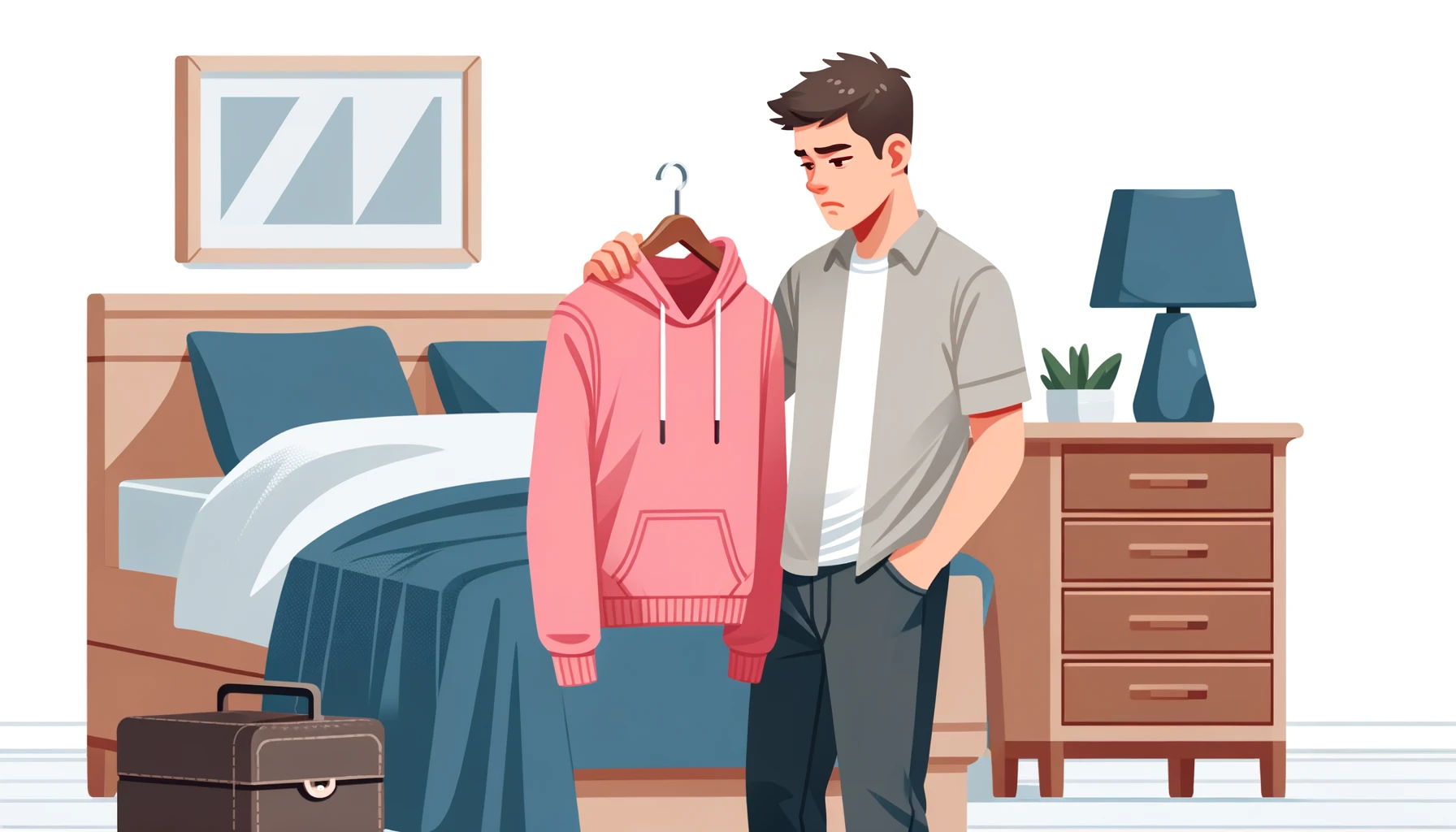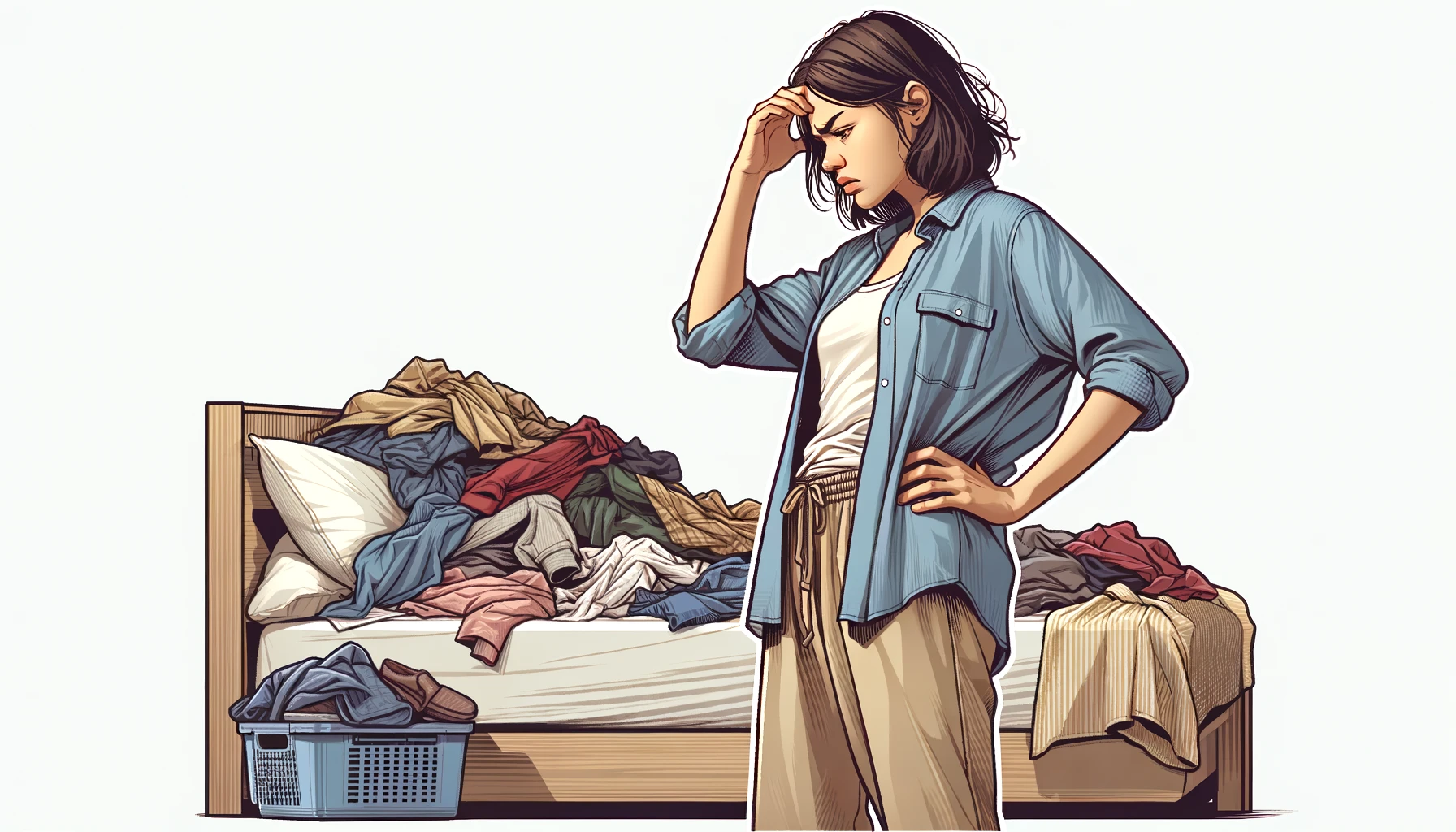Sharing is caring!
Have you ever wondered why after a breakup, some people leave their stuff at their ex’s place? It might seem strange at first.
Why wouldn’t someone want to take all their things with them? But when you think about it, there are a lot of reasons why this happens.
This article is going to explore some of those reasons.
We’re going to look at why exes might leave behind their clothes, books, or even bigger items instead of taking them when they move out.
The main reason exes leave their stuff behind is often because of the emotions involved.
After a breakup, feelings can be all over the place, making it hard to deal with picking up and sorting through personal items.
Some people might leave things behind because they hope it gives them a reason to come back and see their ex again, while others might do it to avoid the final goodbye.
It could be a way to avoid a difficult goodbye, or maybe it’s a sign they’re not ready to let go.
Let’s dive into the different reasons exes might leave their things behind and see what we can uncover.
1. Emotional Attachment
Leaving things behind isn’t always about forgetfulness; sometimes, it’s tied to emotions.
When a relationship ends, objects that once seemed mundane can suddenly hold a lot of sentimental value.
These items can serve as a tangible connection to memories and moments shared. For some, deciding what to do with these belongings can be challenging.
They might leave them behind as a subconscious way to maintain a connection to their ex-partner, hoping it might lead to a conversation or a reason to meet up again.
On the other hand, the thought of sorting through these items can be too painful for some.
Imagine trying to decide what to keep and what to let go of when every item reminds you of someone you’re trying to move on from.
In such cases, leaving stuff behind might be a protective measure to avoid reopening old wounds. It’s a way of putting off dealing with the emotional fallout of the breakup.
Another angle to consider is the idea of leaving a part of themselves with their ex. This doesn’t have to be dramatic; it could be as simple as leaving a favorite book or a hoodie.
It’s like planting a flag, a way of saying, “I was here, and I mattered.” This act can make the leaver feel like they are not walking away empty-handed, emotionally speaking.
There’s the possibility of ambivalence. Meaning, that sometimes, people are unsure about their decision to leave.
They might leave things behind as a way to keep the door open, to signal that they are not completely ready to let go.
This ambiguity can be comforting, giving them the space to reconsider their choices without fully committing to the breakup.
2. Not Being Over The Ex Yet

Leaving belongings behind can be a subtle sign that someone isn’t ready to let go of the relationship.
Deep down, they might hope that leaving items will give them an excuse to return and rekindle the romance.
The thought process here could be, “If I leave some of my stuff, we’ll have to see each other again.” It’s a strategy, conscious or not, to maintain a thread of connection, no matter how thin.
Moreover, leaving items can serve as a physical representation of the space the person still occupies in their heart and mind.
By not picking up their belongings, they’re symbolically not moving on, holding onto the hope that the breakup might be temporary. It’s a way of leaving a door open, a physical and emotional anchor to the past relationship.
Additionally, the act of leaving things behind might be a cry for attention or a way to gauge how their ex-partner feels about them.
They could be watching to see if their ex reaches out about the forgotten items, using it as a barometer for the possibility of reconciliation.
It’s a form of indirect communication, a way to send a message without having to put feelings into words.
Plus, not being over their ex can make the idea of taking everything feel final, too much like closing a book they’re not ready to end.
Leaving belongings behind delays that finality, giving them time to process their emotions and come to terms with the breakup at their own pace.
3. It Doesn’t Just Matter to Them
For some, the items left behind after a breakup may not hold significant personal value.
They might think, “These things aren’t important to me, so why bother?”
This attitude can stem from a desire to simplify their lives and start fresh without the baggage, both emotional and physical, from the past relationship.
It’s about prioritizing emotional well-being over material possessions.
Another perspective is the belief that if these items were truly important, they wouldn’t have forgotten them in the first place.
This could lead to a natural selection process of belongings, where only the items that matter most are taken.
Everything else, by default, becomes expendable in the grand scheme of moving forward.
4. Psychological Closure
Seeking closure is a powerful motivator for leaving things behind. For some, it’s a symbolic gesture of starting anew.
By leaving their belongings, they’re not just physically moving out; they’re also trying to leave behind the emotional baggage of the relationship.
It’s a way of saying, “This chapter is closed, and I’m ready to begin a new one.”
This act of leaving things can also serve as a self-imposed barrier to returning. It’s a form of commitment to the breakup, making it harder to backtrack.
Knowing they’ve left things behind, they might feel more compelled to move forward rather than linger in the past. It’s a psychological trick to reinforce their decision.
Another aspect is the desire to disentangle their lives from their exes. Shared belongings can blur the lines of individuality, especially in long-term relationships.
Leaving these items behind can be a step towards reclaiming one’s independence and identity separate from the relationship.
5. Avoidance of Conflict

Sometimes, the simple act of leaving belongings behind is a strategy to avoid further conflict.
After a breakup, emotions run high, and even a small interaction can escalate into a big argument. By not taking everything at once, ex-partners might hope to sidestep any potential confrontations.
This can be particularly true if the breakup was messy and both parties are still harboring hard feelings.
The thought process goes, “If I don’t have to come back for my stuff, we don’t have to have a difficult conversation.
Moreover, the act of dividing belongings can itself be a source of conflict. Deciding who gets what can reopen old wounds or create new ones.
Some might find it easier to leave things behind rather than argue over them. This choice reflects a desire for peace and the willingness to sacrifice material items to maintain it.
Think of it as choosing one’s battles wisely amid emotional turmoil.
Additionally, avoiding conflict might also mean avoiding the emotional pain of a final goodbye.
Picking up the last of one’s belongings can feel like the final nail in the coffin of the relationship.
By leaving items behind, some might be delaying this painful acknowledgment that the relationship is truly over.
[Interesting: The Types Of Breakups That Get Back Together]
6. Sense of Overwhelm
Breakups are emotionally draining and can leave individuals feeling overwhelmed by the simplest tasks.
The thought of sorting through shared belongings and deciding what to take can be just too much for someone already struggling to cope with the end of a relationship.
In this state of overwhelm, leaving things behind might not be a conscious choice but rather a result of emotional paralysis. This can be especially true if the breakup was sudden or unexpected, leaving the individual in shock or denial.
In such scenarios, the focus might be on emotional survival rather than the logistics of moving out.
The priority becomes self-care and healing, with material possessions taking a back seat.
The thought process might be, “I can’t deal with this right now,” leading to procrastination and eventually leaving items behind.
For some, the overwhelm is not just emotional but also logistical. Coordinating a move requires energy, time, and resources, which might be in short supply following a breakup.
The logistics of packing, especially if the move is to a distant location, can compound the sense of overwhelm.
Under these circumstances, leaving behind non-essential items can seem like a reasonable compromise.
7. Desire for a Quick Exit
The faster someone can remove themselves from a shared living situation, the sooner they can begin the process of healing and move on.
In their rush to leave, they might overlook items or deliberately leave behind things that don’t seem worth the effort of packing.
This is particularly true for items that are easily replaceable or have no significant sentimental value.
The mindset here is, “I need to get out, and I can always buy another one.”
This urgency to leave can also stem from a need to distance oneself from a toxic or painful environment.
In such cases, the emotional cost of staying even a moment longer outweighs the financial or sentimental value of the left-behind items.
The primary goal is to put as much physical and emotional distance between themselves and their ex-partner as quickly as possible.
8. Lack of Clarity on Ownership

In many relationships, the lines between who owns what can become blurred, especially if the couple lived together for a long time.
When it comes time to part ways, it might be unclear which items belong to whom. In such situations, one might leave things behind simply because they’re unsure if they have the right to take them.
The thought might be, “I think this was a gift from them, so maybe I should leave it.”
This lack of clarity can lead to a cautious approach, where leaving things behind is seen as the safer option to avoid accusations of taking something that doesn’t belong to them.
It’s a way to sidestep potential disputes over possessions, aiming for a smoother separation process.
Furthermore, the ambiguity about ownership can make the process of dividing belongings emotionally charged.
Instead of navigating this minefield, some choose to err on the side of caution by leaving items behind.
This decision can be particularly prevalent when dealing with items that both partners used or enjoyed together, such as furniture, appliances, or even pets.
[Also Read: I Hate My Ex For Wasting My Time: Reasons And What To Do]
9. Practical Considerations
Moving out, especially after a breakup, is stressful and emotional. In the chaos of packing and organizing, some items are bound to be overlooked.
For many, the priority is to take what they urgently need, thinking they’ll come back later for the rest.
But as time passes, the prospect of returning for those items becomes less appealing, especially if it means facing their ex.
Furthermore, some belongings might not seem worth the effort initially. This could include items that are bulky or difficult to transport.
The thought of arranging transportation or helping to move these items can be daunting, leading to procrastination.
Before they know it, what was supposed to be a temporary situation turns permanent, and the items are left behind for good.
Let’s also not forget about the financial aspect. Sometimes, the cost of moving items outweighs their value. This is particularly true for things that can be easily replaced, like kitchen utensils or decorative items.
In such cases, the decision to leave stuff behind is driven by a cost-benefit analysis, albeit a quick and emotional one.
Additionally, there’s a matter of space. Perhaps the person moving out doesn’t have enough room in their new place for all their belongings.
Or maybe, they’re moving in with friends or family temporarily and need to minimize their possessions. In these situations, leaving items behind is a matter of necessity rather than choice.
10. Fear of Finality
For many, retrieving their belongings from an ex’s place marks the end of an era, a definitive conclusion to the relationship.
This finality can be daunting, causing some to procrastinate or avoid picking up their things entirely.
The thought of facing their ex for possibly the last time can stir up a mix of emotions, from sadness to fear, making avoidance seem like the easier path.
This fear can lead individuals to rationalize leaving their belongings behind, convincing themselves that they don’t need those items or that it’s not worth the emotional turmoil.
It’s a defense mechanism, protecting themselves from the pain associated with the final goodbye.
The longer they can delay this confrontation, the more time they have to brace themselves for the inevitable closure.
11. The Hope for Reconciliation
Sometimes, leaving belongings behind isn’t just about avoiding the finality of a breakup; it’s also about holding onto the hope that the relationship isn’t over for good.
By leaving a few personal items at their ex’s place, one might think they’re keeping a door open for future reconciliation.
The mindset can be, “If my stuff is still there, I have a reason to come back.”
It’s a way of leaving a breadcrumb trail back to each other, holding onto the possibility of rekindling what was lost.
Sharing is caring!
